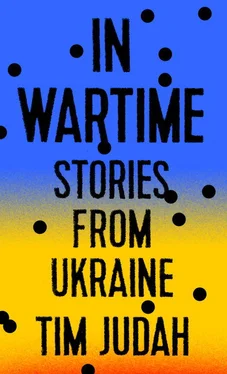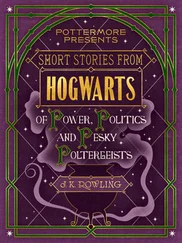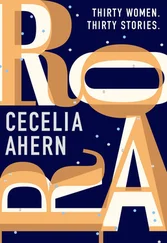The end of the war, the civil war and the revolution saw the Falz-Feins flee to Germany, sailing away from Crimea. Friedrich’s mother refused to go and was shot by bandits or Red Army soldiers at her huge stately home in nearby Preobrazhenka. Fighting raged around Askania-Nova as it changed hands between Whites, backed by German troops, and Reds. With the final imposition of Soviet rule most of the animals had been killed, eaten or had escaped, but perhaps a quarter survived. In 1919 the property was nationalized and in 1921 it became a state steppe reserve. An institute of animal husbandry was developed, based on the scientific work of Friedrich Falz-Fein. Just as Askania-Nova was getting back on its feet, Stalin’s purges began. Between 1933 and 1937 the number of scientists and other workers here who were executed came to eighteen, with more sent to the Gulag. Oddly, as thousands of other places were given new, proper, revolutionary-sounding names, Askania-Nova kept its name with all of its aristocratic connotations. In 1941 war came again and, while officially the reserve and institute continued to be run by a German, by 1943 with the return of the Red Army only 20 percent of the animals were left. Reconstruction began again.
Now the institute started to expand and had large farms at its disposal, and these required manpower. People began to arrive, or be sent to work and settle here, and the village of Askania-Nova grew into a town. At first there were just modest houses, but in the Khrushchev era typical five-story blocks were built. There were shops, a cinema, a bakery, a dairy and a meat plant. And then, said Vera Kravchenko, aged seventy-six, who milked antelopes in Askania-Nova for twenty years, “After perestroika everything began to go wrong.”
Money for the institute was drying up, but Viktor managed to secure the formal separation of the reserve, zoo and arboretum from it. The institute wasted away, but the reserve survived all the tribulations of the post-Soviet era. It was a popular place to visit on holidays and, according to Vera, Viktor ran, and runs, a tight ship. If you work there and get caught drunk you are out. Today Viktor is an angry man though. Budget cuts mean that the state is paying salaries and fuel bills, but for everything else the reserve and the zoo need to find the money themselves. One source of income is breeding and selling animals, such as saiga and bison; the other is ticket sales. Before the war Askania-Nova had been receiving an average of 100,000 paying visitors a year. In 2013 it had 86,216, but the annexation of Crimea and the beginning of the war saw the number collapse to 34,096 in 2014. So, said Viktor, “I have a big bill for Putin!” He wrote to his colleagues in Moscow to protest against the takeover of Crimea and what was happening in the east, saying that scientists should not stay quiet as they had when Hitler had taken over Austria and the Sudetenland. One of the most senior men he wrote to, an old friend, did not reply but his deputy did. The response was: “We are not free in communications.”
I was staying the night at Vera’s house. She and her husband had rooms for guests, and the conflict had seen their numbers tumble in line with park visitor numbers. She and her husband came, as did so many, after the Second World War. Around the house they have pictures of kittens, saints, parrots and Stalin. They have family in Crimea, and Nikolai Kravchenko, who is eighty, told me they say things are great there now since the Russians have taken over. When I asked if he thought they should come here too, he answered: “Of course! They should have done it years ago.” Of Stalin he said ruefully: “He was the leader of our lives.” The rest of the family was more circumspect. His daughter Oksana and Anatoly Ivanov, her husband, aged sixty-three, went to live in Russia in the 1990s. In the end they decided to come back when there was a crackdown on illegal immigrants. They could not get their paperwork in order without paying a $5,000 bribe, which they could not afford, even though Anatoly was making good money working for the police as a vehicle electrician. Of the family in Crimea, he said, after a period of going on about how great it was with higher pay and pensions, they had gone very quiet because prices had risen so much too. He did not want the Russians to come to Askania-Nova. In Crimea, people were no longer free to say what they wanted, but “I can say whatever I like.”
Life in Askania-Nova still revolves around the reserve and the institute, which together employ about 450 people. In Soviet times they employed 1,100. The collapse of employment has led to an exodus. From a peak of 10,000 inhabitants in the mid-1980s there are now only 3,500 living here, and most of them are elderly. The absence of people gives the town an eerie feeling. Nikolai said that he called his street, lined with pleasant houses with vegetable gardens, “the street of death” because so many of his neighbors have left or died. Walk down the street and it is immediately clear how many houses are empty and beginning to fall down. On the main street a new house of culture, which would have been a sort of village hall, was built at the end of the Soviet period but then sold to someone in what locals assume to be some money-laundering scheme. Now it is closed, a dilapidated eyesore just like the old cinema on the other side.
Some of those who left in the late 1980s and early ’90s were Germans, or people claiming German descent who could thus go to Germany. I wondered if some of them were the descendants of the colonists who had come as part of the original settlement or with the Falz-Feins. People looked blank when I asked them about this. I went to the cemetery just outside town and met a woman and her husband. I had seen gravestones with German names and asked her about this. She told me that her father, whose grave she had come to visit, had been an ethnic German. But, she explained, he had been a Crimean German, a descendant of settlers who had arrived at the beginning of the nineteenth century. In 1941 all of the Crimean Germans, like the Crimean Tatars, were deported by Stalin before the arrival of the Nazis, and so she had been born in Kazakhstan. After the war, again like the Crimean Tatars, the Germans were prevented from returning home but they could come here, and many did to one nearby village in particular, which was about as close to Crimea as they could get.
A few hundred meters away we could see a large Ukrainian mobile radar. It was there to help keep watch on the Russians and to give early warning in case their forces move out from Crimea and begin an invasion of the mainland.
39.
“A hundred years of crap”
A couple of times I thought Natalie Jaresko was going to cry. But she did not. It was twilight and we sat on the terrace of her house just outside Kiev. As we talked, all the emotion of trying to save Ukraine from economic oblivion bubbled to the surface. Each time, though, the Minister of Finance regained her composure. Her two daughters, aged seventeen and eleven, drifted in and out asking homework questions. The next morning her older daughter was taking an economics exam. “I just feel incredible pressure,” said her mother. Ukraine’s very “existence as a country” was under threat, and “we have no choice but to succeed.”

Natalie Jaresko, Minister of Finance. Kiev, April 2015.
The figures were dire. In 2014 industrial production declined by 21 percent and the hyrvnia had lost 69 percent of its value against the dollar. The country had lost territory, resources, industries, people and markets. Between 40 and 60 percent of economic activity is in the gray economy. In the first quarter of 2015 the economy was 17.6 percent smaller than a year before. The war, which was costing between $5 and $7 million a day, is being fought with guns, but securing the home front means saving the economy too. After twenty-three years of poor and often literally criminal management, refiring its engines, making sure that the country did not implode under the weight of its debts and generalized corruption was a responsibility which fell, out of the blue, onto Natalie’s shoulders.
Читать дальше













